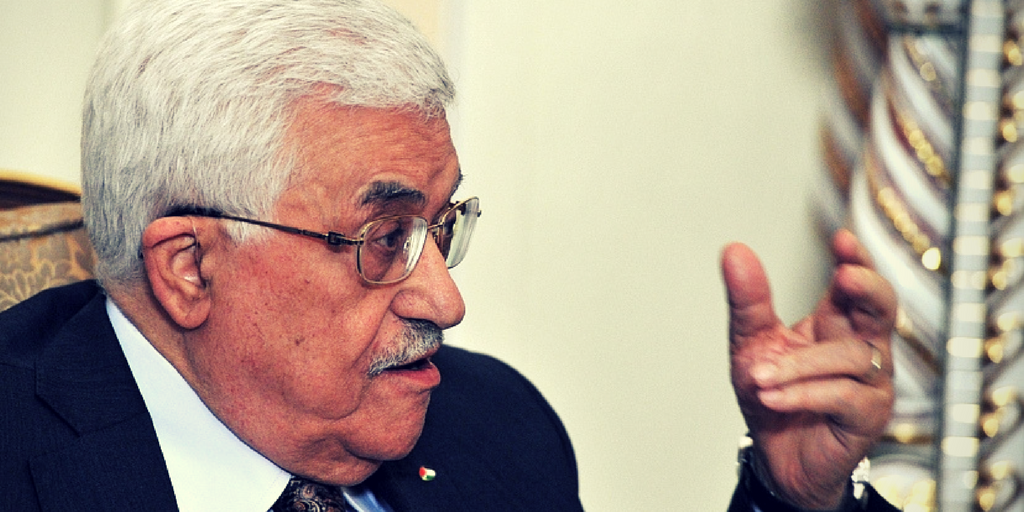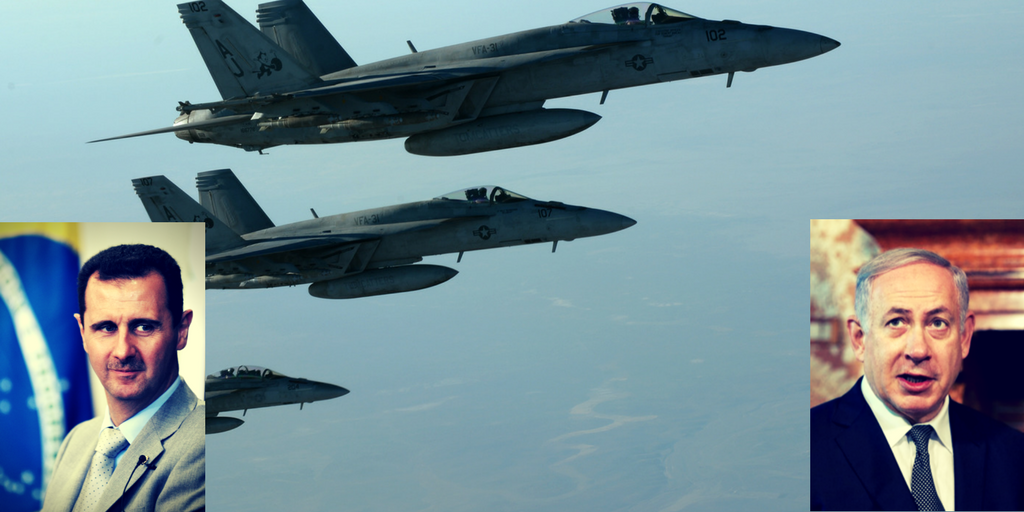While Israel has been “managing the conflict”, its non-state adversaries have been enhancing their capabilities so dramatically that they now a grave strategic threat
…to remain at peace when you should be going to war may be often very dangerous. ..–Thucydides, The History of the Peloponnesian War, 431 BCE
This week, Israel conducted its largest military exercise for almost two decades code named “Or Hadagan” (“the Light of the Grain”), reportedly in honor of the late Meir Dagan, former director of Mossad.
Far reaching shift in threat perception
The drill, which took place in the north of the country, and involved tens of thousands of troops from all branches of the IDF, was intended to prepare the Israeli military for a possible future confrontation with Hezbollah.
This, in itself, reflects far-reaching changes in the realities on the ground and the resultant shift in Israeli threat perception and hence in the armed forces’ operational focus and strategic outlook that have taken place since the end of the 2006 Second Lebanon War.
Thus, while the Syrian army has been almost totally eroded by six-and-a-half years of civil war; Israel now considers Hezbollah as the primary and most immediate threat, and the Lebanese front, the one of most pressing concern.
In many ways, the recognition of the ascendant threat from Hezbollah comprises a grave indictment of the conduct of the 2006 War—and an admission (at least implicitly) of its gross mismanagement.
This is significant, because the calm that has generally prevailed in the North since 2006 has —despite wide acknowledgment of the disappointing IDF performance in that engagement—led numerous pundits to applaud the deterrent effect that the massive damage inflicted on Lebanon at the time, allegedly produced. In some cases, this prompted suggestions that a more favorable retrospective assessment of the war and its execution might be called for.
Sadly, there is little to support this benign attitude—and emerging realities serve only to underscore the long term detrimental impact, which that indecisive encounter—and its subsequent political and strategic ramifications—have had (and are still likely to have) on Israel’s security.
“To defeat, not deter…”
But changing threat perception was not the only major shift in military thinking associated with the drill. For the reported definition of its objectives seem to indicate an emerging awareness that the approach adopted over the last few decades has been both dysfunctional and detrimental.
Thus, in a recent opinion piece in Haaretz, entitled Israel Dare Not Allow Hezbollah to Strike First veteran commentator Israel Harel wrote: “For many years, including (or especially) the Second Lebanon War, the IDF did not truly aspire, as an army going to war must aspire, to defeat the enemy once and for all, in other words to neutralize its capacity to further endanger the lives of Israel’s citizens, soldiers and infrastructure.”
“This time” he noted “the military commentators wrote and broadcast, the “intention” is clear: to finish (the word expressly used by the exercise’s commander) the enemy.”
Articulating the move towards this new (or rather renewed) aspiration to defeat, rather than deter, the enemy was a report by Haaretz’s military correspondent, Amos Harel (not to be confused with previously-mentioned Israel Harel) in which the sub-headline declared: “Military says it will no longer settle for deterring Hezbollah, which replaced Syria as No. 1 threat on Israel’s borders.” Referring to the professed goal of the “Or Hadagan” drill, Harel wrote“ The objective is to defeat Hezbollah. This time the talk is not of inflicting significant harm to Hezbollah, to deter it, or to quash its desire to fight until the next round of violence.”
Conflict management: A concept discredited
The conceptual paradigm that forms the basis of the IDF’s aversion to victory-oriented strategies is the idea of “conflict management”. One of the prime proponents of this approach has been the BESA Center for Strategic Studies at Bar Ilan University.
A synopsis of “months of debate in BESA seminar rooms” published about a year ago, reported that a consensus had emerged among the center’s experts that “Conflict management is currently the least-worst option”, and that it “is wiser for Israel to defer action than to take steps that threaten to make a bad situation worse”.
Arguably, one of the most explicit advocates for the idea of conflict management is Prof. Efraim Inbar, formerly BESA’s longstanding director, who declared: “Israel’s recent governments are left, willy- nilly, with a de facto conflict-management approach, without foreclosing any options.” He conceded that: “there are costs to this wait and- see approach”, but counselled “…this was the approach favored by David Ben-Gurion. He believed in buying time to build a stronger state and in hanging on until opponents yield their radical goals …”
In a 2014 policy paper entitled “Mowing the Grass in Gaza” and coauthored with Eitan Shamir, he set out the essence of this conflict management approach as it pertained to Hamas in Gaza: “Israel is acting in accordance with a “mowing the grass” strategy. After a period of military restraint, Israel is acting to severely punish Hamas for its aggressive behavior, and degrading its military capabilities…The use of force… is not intended to attain impossible political goals, but rather is a long-term strategy of attrition designed primarily to debilitate the enemy capabilities”.
Clearly, this prescription has failed dismally both with regard to Hamas and Hezbollah, neither of whom have had their capabilities “debilitated”, nor have forgone their “radical goals.”
Conflict management discredited (cont.)
After all, not only is there any sign of either of these organizations moderating their radical rejectionist approach towards Israel, but the periods of inter-bellum calm have been consistently used by both to dramatically upgrade their capabilities.
Thus, when Israel left Gaza (2005), the range of the Palestinian rockets was barely 5 km., and the explosive charge they carried about 5 kg. Now their missiles have a range of over 100 km. and warheads of around 100 kg.
When Israel left Gaza, only the sparse population in its immediate proximity was threatened by missiles. Now well over 5 million Israelis, well beyond Tel Aviv, are menaced by them. To this alarming tally, add the massive array of attack tunnels that Hamas was able to develop since the evacuation while Israel was “mowing the lawn”, making any suggestion that its capabilities have been “debilitated” utterly ludicrous.
This is even more so in the case of Hezbollah, who, since 2006, has reportedly increased its then-already formidable arsenal in South Lebanon, abandoned to them, courtesy of the hasty 2000 unilateral IDF withdrawal mandated by Ehud Barak, tenfold—to anywhere between 100,000 to 150,000!
Moreover, the improvement has not only been in the quantity of the missiles trained on Israel’s population centers, as well other civilian and military targets, but in the accuracy and the explosive charges of the war-heads. Likewise, the ranks of its fighters has more than doubled, and their operational capabilities greatly enhanced, among other things, due to the combat experience acquired through their participation in the Syrian Civil War.
Mistaking “regrouping” for “deterrence”
In light of all these daunting developments, it is clear that successive bouts of limited fighting have done little to deter either Hamas or Hezbollah in the sense of breaking their will to engage in battle. Rather, after every round, they have been forced to regroup, redeploy and rearm—only to re-emerge spoiling for a fight, ever bolder, with ever-greater (indeed, once inconceivable) capabilities.
In this regard, a far from implausible claim could be made that it was not the consequences of the 2006 war that dissuaded Hezbollah from entering the fighting in 2014 to support Hamas against the IDF during Operation Protective Edge. Rather the fact that the organization was bogged down in the Syrian civil war, propping up their patron Bashar Assad—a fortuitous outcome that cannot really be ascribed to the efficacy of Israeli deterrence policy.
Accordingly, it is difficult to refute the recent cocky taunts of Hezbollah leader, Hassan Nasrallah, that “Every time an Israeli official refers to Hezbollah’s growing power, he admits Israeli defeat in the summer of 2006”. Well, at least if not defeat, denial of victory.
Indeed, just how appallingly the Second Lebanon War was conducted can be judged by the fact that, according to Israeli estimates, the number of missiles liable to rain down on Israel in any future confrontation with Hezbollah is somewhere between 1000 to 1500 a day—ten times that which fell in the previous war, and which kept millions of Israelis huddling in shelters for weeks on end. Now imagine an assault ten-fold larger, factoring in the greater accuracy and greater explosive power of the missiles today—coupled with a possible auxiliary attack from Gaza…
These are the bitter fruits that conflict management has produced.
There but for the grace of God…
Against this grim backdrop in Lebanon, the developing realities in Syria must be taken into consideration: The deployment of Russian forces and the growing dominance of the Iranian presence in the country.
If the ominous developments in Lebanon can, in large measure, be ascribed to the flaccid policies of the Olmert government; in Syria, they are due to those of the Obama administration.
The former, shackled to its political doctrine of territorial concession and compromise, could not take the necessary and timely action to bring Hezbollah to its knees in a humiliating defeat—and end the fighting with a white flag of surrender over the Hezbollah positions and Hezbollah combatants being led into Israeli captivity.
The latter, unshackled from a traditional view of American national interest, created a vacuum into which Russia and Iran inserted themselves. Of course, the Iranian activity in Syria (and elsewhere) has been greatly facilitated by the appallingly naïve (or is that nefarious?) agreement orchestrated by the Obama administration in July 2015 over Tehran’s nuclear program, which greatly empowered the Iranian theocracy, enriched it economically and entrenched it politically.
One of the many menacing aspects of this is that the strong Iranian presence in Syria will allow the deployment of its proxies—including Hezbollah—along the border in the Golan, effectively increasing the length of the front along which Israel will have to confront such forces in any future military encounter.
All this should cause us to shudder with dread at the thought that, had the “enlightened” voices of moderation, reason and understanding of the “Other”, carried the day, and Israel had withdrawn from the Golan, all these perils would be perched on the heights overlooking the Sea of Galilee, the city of Tiberias and much of northern Israel.
There but for the grace of God…
Backing away vs. backing into confrontations
For several years now I have been warning against clear and present dangers inherent in conflict management—cautioning that it is little more than “kicking the can down the road” into a risk fraught future. I expressed growing concern that by adopting a policy of avoiding confrontations. which Israel could win, the government may well back the nation into a confrontation so severe that it may not—or only do so at devastating cost.
Now, faced with a prospect of thousands of rockets (many accurate and high explosive) being launched daily against Israel along two possible fronts – an extended one in the north and one in the south; faced with the threat of an array of yet to be discovered terror tunnels—both in the north and the south; with these forces operating under the auspices of near-by Iranian troops and with the possibly inhibiting presence of Russia in the region, we can only hope that such a crucial confrontation is not upon us.
But should such a conflict erupt, our fervent wish must be that the IDF is not tempted to attempt to “manage” it, but be true to the declared aims of the “Or Hadagan” drill–and strive for unequivocal victory in it…





